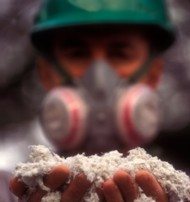Uncovering the Hidden Risks: Work-Related Cancers in Northern Africa

Cancer is a major global health concern, with exposure at work being a significant cause. A new study by the Tunisian Institute of Occupational Health and Safety looks at work-related cancer cases from 2015 to 2020.
Understanding the impact
Certain jobs expose people to cancer risks, like mesothelioma, lung, and breast cancer. Mesothelioma is one of the world’s deadliest cancers. It is caused by breathing in or swallowing asbestos dust. This usually happens at work.
The dust may look harmless enough. But microscopic asbestos fibers are like shards of cancer-causing glass. They become embedded in the tissue and wreak havoc over time.
It can take decades for mesothelioma to develop after occupational asbestos exposure. But once it does, patients usually have less than a year to live. Some jobs are known to pose a mesothelioma risk.
This new study aims to understand these risks better, focusing on cases in North Africa. The study looked at seven cases, with an average patient age of 60 years. All patients were smokers, showing how work and lifestyle choices can combine to cause cancer.
Occupational Roles and Exposures
Patients in the study had different jobs, like miners and construction workers. All were exposed to harmful substances like silica, asbestos, solvents, and nickel for an average of 27 years.
Six patients had lung cancer, showing high risk in certain jobs. One had bladder cancer, highlighting the need for safety in all industries.
Symptoms appeared about 20 years after starting work, showing cancer can develop slowly. Detailed work histories revealed exposure to harmful substances on the job. This led to their classification as an occupational disease.
Implications for Prevention
This study shows how work can lead to lung and bladder cancer. More studies have shown similar results for mesothelioma. Preventive actions like protective gear and automating dangerous tasks are crucial.
This study gives insights into work-related cancers. Understanding these risks can help us prevent them, making work safer for everyone. Continued research and proactive measures are key to protecting workers’ health.
Source:
Nakhli, Rania, Nesrine Kammoun, Jihen Rejeb, Narjess Belhadj, Sonia Fehri, and Habib Nouaigui. “Epidemiological Insights into Occupational Cancers: A Five-Year Retrospective Analysis at the Tunisian Institute of Occupational Health and Safety.” Biomedicine & Healthcare Research 2, no. Issue 2 (January 31, 2024): 12–15. https://doi.org/10.5281/zenodo.10569982.





